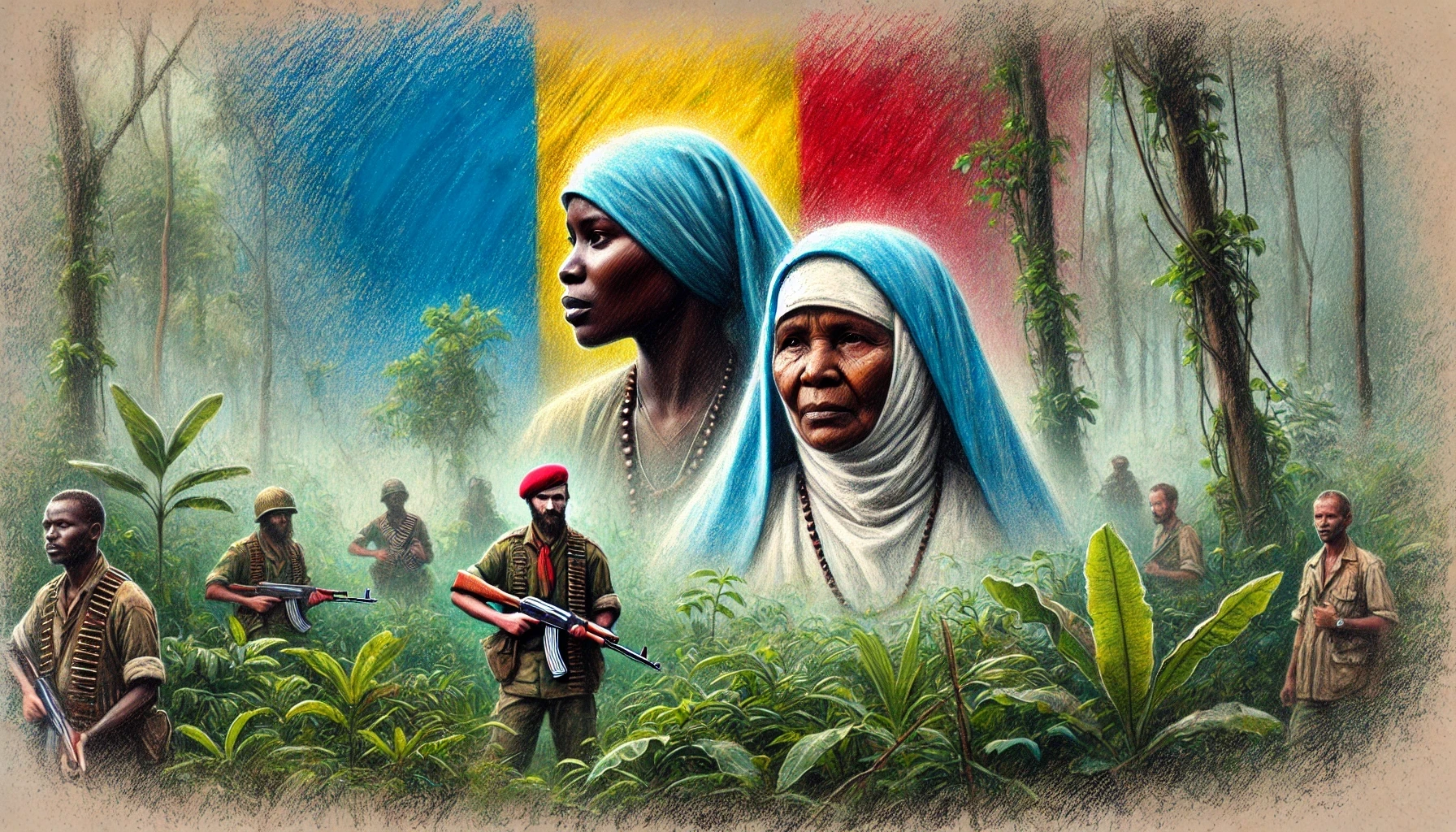
Special spazio + spadoni Missionary October: Instability in Chad
Sister Paola Nuzzi: “Guerrilla warfare is no longer news”
By Ilaria De Bonis
Sister Paola Nuzzi, a St. Jeanne Antida Thouret Missionary of Charity in Chad for more than 30 years, lives in the capital N’Djamena. She tells Missio that, particularly in recent months, the climate in the country is tense. Around the Lake Chad area on the border with Cameroon, armed Boko Haram militias rage.
“Guerrilla warfare has become a very normal thing in Chad and is no longer news,” he says, ”Those who die are always the poorest, because they cannot defend themselves. To us sisters who live in N’Djamena, life seems quiet, but we know very well that on the other side of the country, fighting continues. Civilians continue to die. And they are many, so many!”
Chad is one of those unstable countries where a war defined as “low-intensity” has been fought for decades, provoked by the continuous incursions of rebels who oppose the president, Idriss Déby, in power since 1990 when he deposed the previous one in a coup.
“Since then,” the missionary notes, “the opposition cyclically tries to depose him so there are terrible days of war”.
The terrorist group Boko Haram rages in the Lake Chad region bordering Cameroon: last April, government troops coordinated by Idriss Déby himself launched an offensive, the so-called “Operation wrath of Boma,” killing about 1,000 militiamen.
But the rebels are always ready to organize reprisals targeting ordinary people. “People are afraid, and many times we sisters have been afraid too,” the missionary says.
The missionary recalls an incident of guerrilla warfare dating back to 2008, when rebels and the army confronted each other in a border area, where a hospital was taken hostage: “Our sisters worked in that hospital.”
For days “we had no news of them, we only knew that the military and rebels were shooting at each other from one side of the territory to the other, and our sisters were in the middle.”
Life in this former French colony is miserable and suffering much: “When I arrived in Chad in the 1980s,” she recalls, “this land bore no fruit, it seemed as hard as concrete. Now we are beginning to cultivate, but our own rulers always knew that growing the country meant no longer having control over the people. When I arrived there were barely five kilometers of paved road.”
Now Chad is more developed, but remains extremely poor. Yet there is no shortage of wealth: gas and oil fields here are coveted by many. France “still considers the country as its colony,” notes Sister Paula.
The Missionaries of Charity of St. Jeanne Antida Thouret have been working between Central African Republic, Chad and Cameroon since 1960.
“We opened the first house in Central African Republic in 1960, then in 1962 in Chad,” she recalls, ”After a few years we started the first schools and the promotion of women. These were our first approaches. In Chad we did a lot of work in the dispensaries: today in N’Djamena there is our coordination of missionaries from the three countries. We also have some young women who are preparing for religious life. In Cameroon we also have our own hospital, and we are running it with a lot of commitment.”
Source
Images
- Digitally created image by spazio+spadoni
